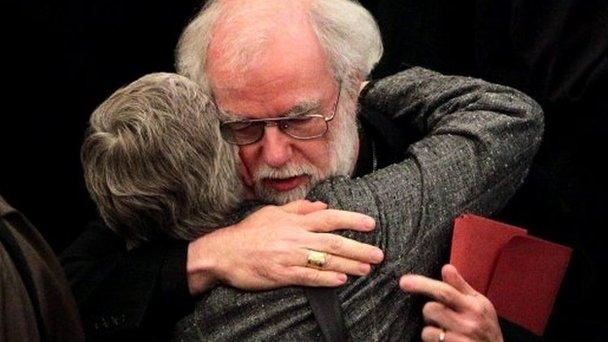Women bishops vote results in supporters' tears and anger
- Published
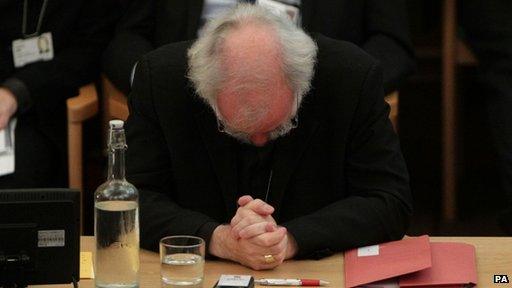
The support of Rowan Williams was not enough to push through the change
The decision by the general synod of the Church of England to reject women bishops will come as a shattering blow to most Anglicans.
All but two of the Church's 44 dioceses had indicated support and indeed a majority of members of the synod were in favour. But a complicated voting system meant they fell 6 votes short of what was needed.
The result left some supporters of the change in tears, others angry at the outcome. Those who had campaigned against any change were more relieved than delighted and vowed to work constructively to find a way forward.
The vote was always going to be tight. The hurdle that supporters of women bishops had to overcome was high - they needed to get the support of at least two-thirds of the three sections of the synod - the houses of bishops, clergy and laity.
'Mission inhibited'
Speaking afterwards, the Bishop of Liverpool, the Rt Rev James Jones, who had spoken passionately in favour of the change, said the vote would inhibit the Church's work.
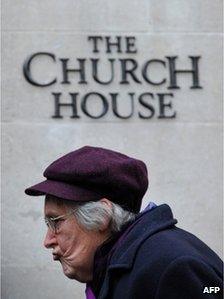
The issue of women bishops has involved years of negotiations
"The Church of England serves the nation by having parishes all across the country, and thousands of those parishes are led by women. Therefore, not to have women bishops does inhibit us on our mission. But we're still hopeful that one day the door will finally open," he said.
Most of the discussion within the synod centred on the provision being made to ensure that opponents of the change could, in good conscience, remain within the Church by having access to a male bishop.
Tortuous negotiations had taken place over the exact wording of the clause. But it was overwhelmingly rejected by the very people it was intended to reassure.
The Reverend Rose Hudson Wilkin, one of the Queen's chaplains and a strong supporter of the change, was furious at the efforts made to accommodate opponents.
"Those who can't take it will have to make a decision for themselves as to whether they stay or leave," she said.
"We cannot as a Church do what we have just done for the last 20 years - beat up on each other, fight with each other, argue with each other, no. We must make the best decision for the Church."
Ranged against those pushing for change were a variety of groups. Some argued that the Bible teaches that only men can lead the Church, others were concerned that allowing women bishops would create deeper rifts with the Catholic Church at a time when Christian unity is needed.
'Get down to business'
Lorna Ashworth, from the evangelical campaign group Reform, said it would now work to find a way to allow women to be consecrated as bishops.
"The Church has declared its mind on that subject. This is a spanner in the works for that, but it's an opportunity," she said.
"We have to get down to business now and do it absolutely correctly, and show those people on the outside that there is a reason to have confidence in this Church."
The leadership of the Church were fully aware that the vote would be close and spoke out clearly in favour of change.
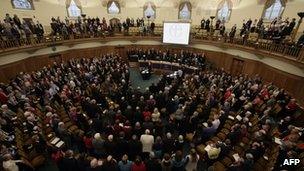
The synod will not discuss the issue for another three years
The Archbishop of Canterbury, the Most Reverend Rowan Williams, had urged the synod to grasp this "potentially liberating moment" and allow the Church to move on.
His successor, the Rt Rev Justin Welby, had also urged support, telling members "the time is now". Having failed to sway wavering members, he'll shortly have the thankless task of negotiating a way through a debate that divided the Church for more than a decade.
The failure to get the necessary support means that the issue cannot be formally discussed by synod for at least three years.
Many in the Church expect it to take even longer, with the potential for the debate to drag on for many years amid increasing questions within the Church itself about its relevance in wider society.
- Published20 November 2012
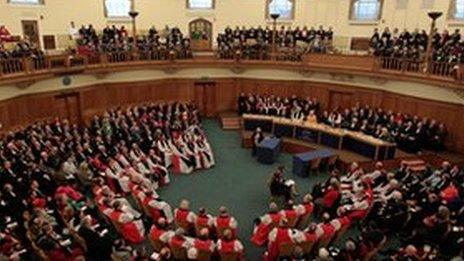
- Published16 November 2014
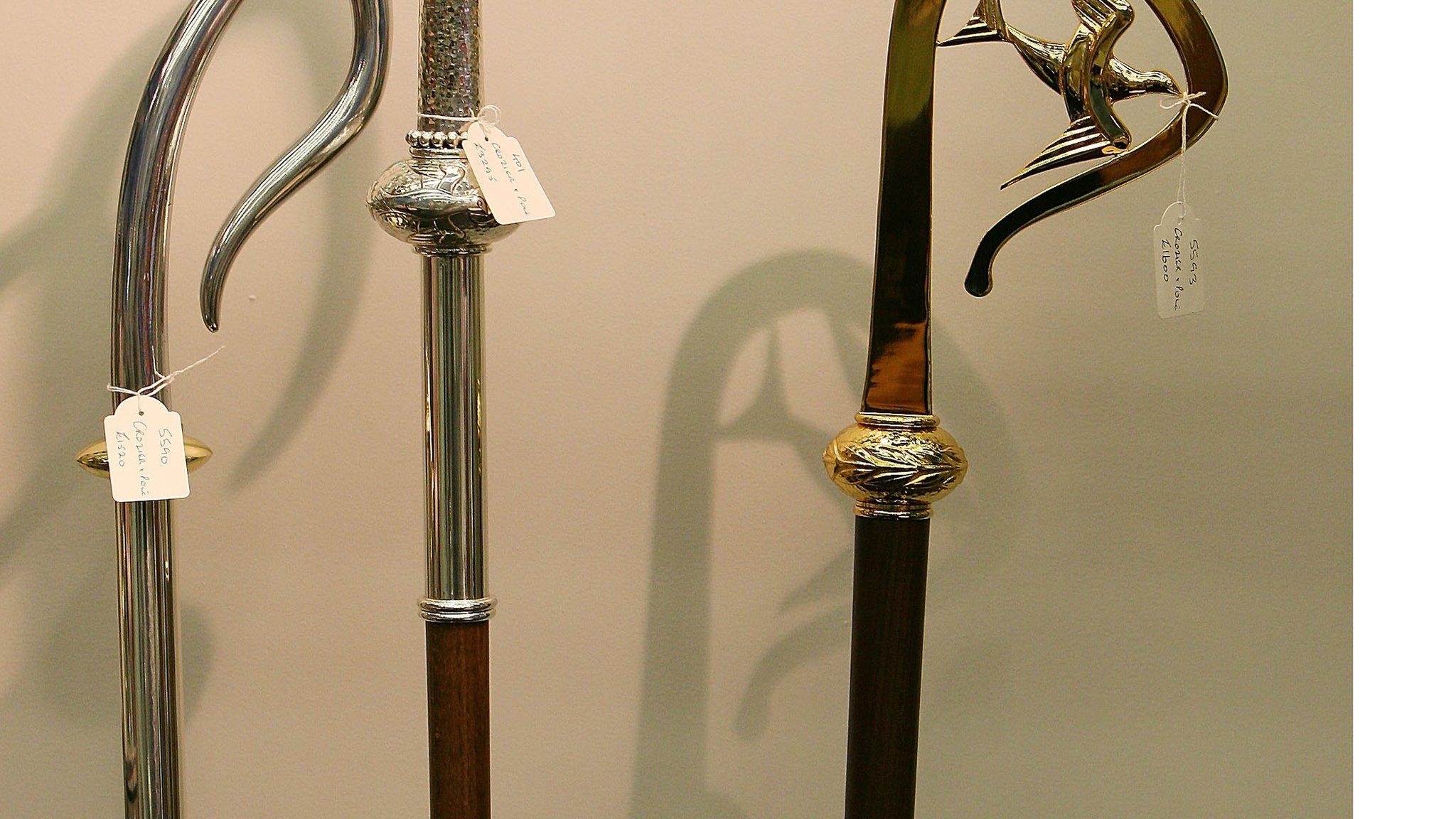
- Published21 November 2012
